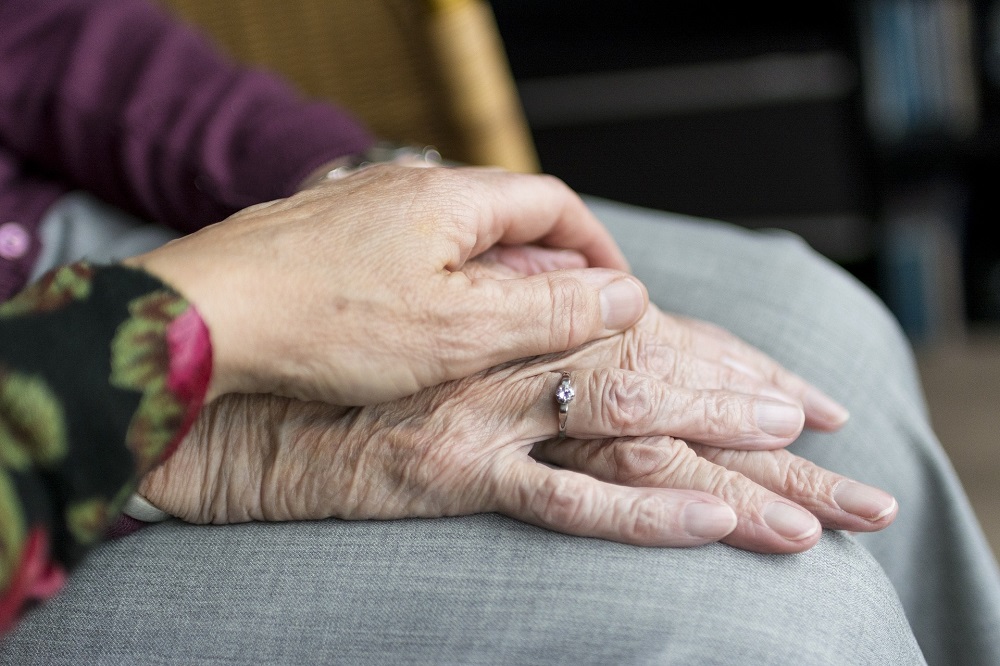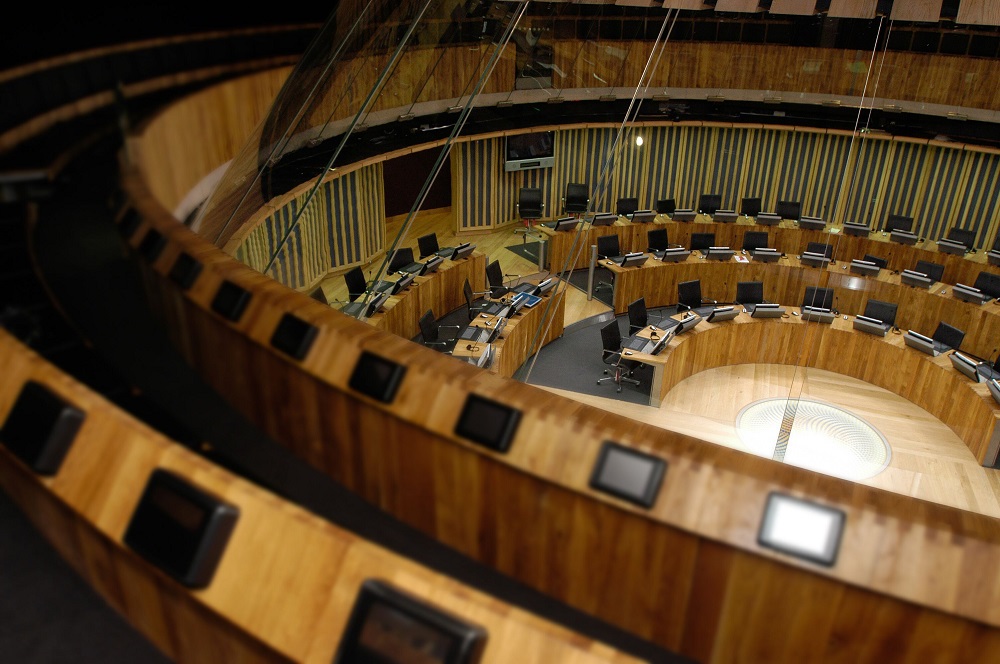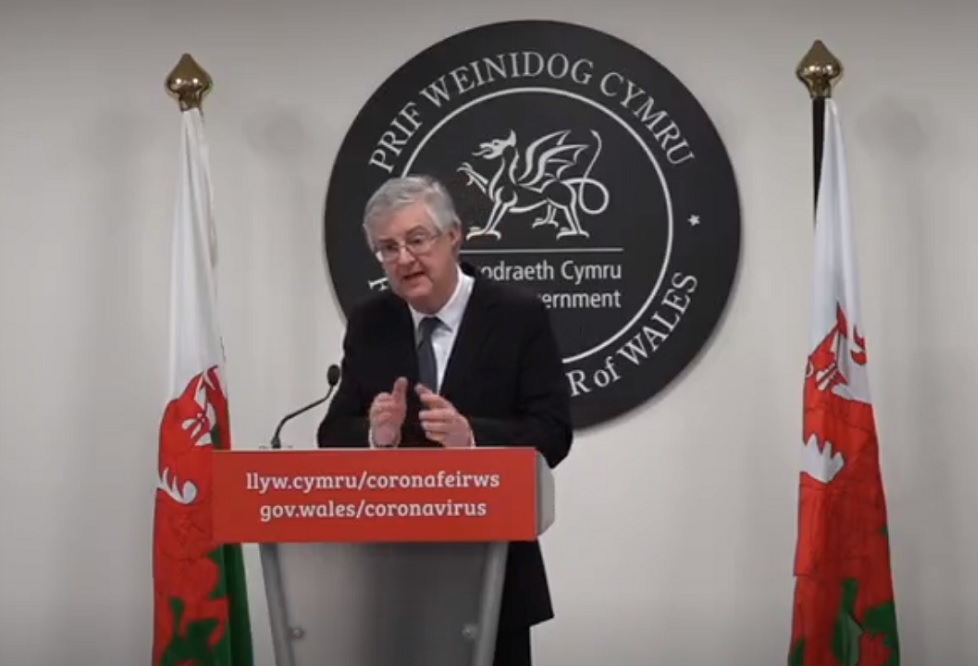Senedd roundup: Care home testing defended after claims human rights breached

Image by Sabine van Erp from Pixabay
Owen Donovan, Senedd Home
The chief executive of the NHS in Wales, Dr Andrew Goodall, has defended the testing programme implemented in care homes during the Covid-19 pandemic.
He was responding to comments from the Older People’s Commissioner in Wales, who called for the Welsh Government to be investigated by the Equality and Human Rights Commission over fears human rights of older people could have been breached.
Last Saturday Health Minister, Vaughan Gething announced that coronavirus testing would be extended to all care home residents and staff in Wales but previously only residents and staff in care homes with confirmed case of coronavirus were tested.
According to the Office of National Statistics 27% of the coronavirus deaths in Wales have been care home residents.
Older People’s Commissioner, Helena Herklots, told BBC Wales she believed the human rights and right to life of care home residents had been breached due to delays in expanding testing: “I have serious concerns that older people’s human rights have been breached; the fundamental right to life. The fact that testing wasn’t in place as quickly as it needed to be for every resident and every member of staff.
I’m extremely disappointed and saddened that the Welsh government hasn’t moved quickly on this. That is why I believe the Equality and Human Rights Commission needs to investigate how older people have been treated throughout this pandemic.”
Speaking at the Welsh Government’s daily coronavirus press briefing, Dr Goodall said steps had been taken from the outset of the pandemic to support care homes, including “asking for visiting time arrangements to be changed, providing additional help and support in respect of infection control”.
He added: “Even during this week, I know homes that do not have any reported cases have been having twice-weekly calls, for example, in terms of making sure that we are able to support them.”
“Any home with an outbreak has a daily mechanism in place to make sure we’re able to support it.
“But a lot of the advice we have to give is really about ensuring that the normal good practice and infection control measures are in place.
“Actually, the use of a test is simply a diagnostic mechanism to ensure that the right actions are in place.
Janet Finch-Saunders MS, the Welsh Conservatives Shadow Minister for Older People, welcomed the action by the Older People’s Commissioner and said: “What has happened in care homes will likely be remembered as a national scandal, and I dread to think how many lives could have been saved.”
Plaid Cymru Shadow Local Government Minister Delyth Jewell MS called for the government to publish the evidence that guided their decisions not to test everyone in care homes and said: “The bitter truth is that more lives could have been saved if a universal testing policy had been in place in care homes from the start.”
The number of deaths in Wales from coronavirus now totals 1,247 after Public Health Wales confirmed a further nine people have died with.
There were 166 new cases diagnosed in the last 24 hours lifting the total number of people that have tested positive with the virus to 12,846 – 1,843 tests were carried out since yesterday.

Who will train the tracers?
Local government will be at the forefront of the Welsh Government’s recently-published “track and trace” strategy, though the situation in England provides an idea of the scale of the challenge as well as a warning on how not to approach it.
According to recent reports in The Guardian, many people who signed up to act as contact tracers in England have been left in the dark on what their role would be, having been given a generic script to work from and directed to Youtube videos. An online training system reportedly resulted in a single train being available for every 100 tracers.
Last week, Dr Hefin David MS (Lab, Caerphilly) revealed that following discussions with public health authorities 3,000 staff would be required in Wales, with up to 30 people needing to be traced for every single person infected. The Health Minister told him the figure was closer to 1,000 staff but could change.
The issue returned to the Senedd in yesterday’s topical questions.
Delyth Jewell MS (Plaid, South Wales East) said local authorities still haven’t been told how contract tracing will work on the ground. She also asked for clarification on the required numbers of tracers and whether they would come from within local government or via external recruitment.
Mark Isherwood MS (Con, North Wales) warned that local government finances would be “crippled” if the Welsh Government’s doesn’t fully commit to funding the programme.
Local Government & Housing Minister, Julie James (Lab, Swansea West), said making full use of local authority expertise in environmental health was essential, while the full costs are still being identified.
While not giving any clarification on the number of tracers that would be required, the Minister did hint the Welsh Government were learning lessons. While there would still be scripts for tracers to work from, detailed planning was ongoing in terms of data capture and the necessary training requirements.
The Minister also suggested the track and trace programme will be piloted before being rolled-out nationally.

Senedd backs Welsh Government pandemic exit plan but calls for clarity over virus suppression strategy
Yesterday, MSs held the first proper debate since March – a sign perhaps that things are starting to get back to the usual routine in “Cardiff Bay/bedroom/office/living room” albeit under social distancing and via Zoom.
The subject of the debate was the Welsh Government’s recently-published lockdown exit plan.
The Motion (Final/Amended Version)
The Senedd:
- Notes the publication of Unlocking Our Society and Economy: Continuing the Conversation which sets out how Wales can progressively move out of lockdown and thanks the people of Wales for their ongoing support and commitment to reducing the spread of coronavirus.
- Believes robust testing and contact tracing system is a necessary prerequisite for the lifting of restrictions.
- Believes the Welsh Government must work in collaboration with other UK governments as part of a four-nation approach but agrees that public health should be at the forefront of the decisions about when and how stay-at-home regulations will be eased.
- Recognises those who have lost their lives during the pandemic and extends its deepest sympathies to the bereaved and also commends the hard work and dedication of critical workers during the pandemic.
- Supports the call by the police for the First Minister to ensure the lockdown fines are increased (which happened).
- Calls on the Welsh Government to press the UK Government to introduce a universal basic income and to explore all other avenues available to the Welsh Government to ensure financial support is available to the people of Wales.
Response from the people of Wales “outstanding” but opposition say the exit plan is a missed opportunity to provide hope
The First Minister praised how the people of Wales responded to life under lockdown conditions, which he described as “outstanding”. The exit plan states what measures will be taken in different areas of public life as the restrictions are eased – though that will only happen if and when the scientific and medical evidence suggests it’s safe to do so.
Talks are taking place between the UK’s governments and the English mayors. While a united four nations approach is preferable, the Welsh Government’s decisions will be based on Welsh interests.
Leader of the Opposition, Paul Davies MS (Con, Preseli Pembs.), said the exit strategy was a missed opportunity to provide some hope – with clear dates and milestones. The machinery of government should now be geared towards lifting restrictions, particularly for businesses.
Adam Price MS (Plaid, Carms. E. & Dinefwr) said the language in the exit strategy was ambiguous as it wasn’t clear whether the Welsh Government were going to try and eliminate coronavirus (as in New Zealand) or simply maintain a manageable number of cases over a longer period (“flatten the curve”). He also believed the track and trace system had to be working properly before restrictions can be lifted.
A question of finance
Several MSs made contributions based around finances. While a supplementary budget is due soon, both Lynne Neagle MS (Lab, Torfaen) and Shadow Finance Minister, Nick Ramsay MS (Con, Monmouth), stressed the need to support the hardest-hit areas. There was also support for a universal basic income.
“I turn to an area where I hope that we can agree, and that is the idea of moving in the post-Covid era to a universal basic income. Now, this is an idea that I’ve been advocating for a very long time, and it has seen sometimes as a romantic idea…. but we’ve seen the Spanish Government introduce this. In response to the crisis, we must commend the efforts of the Welsh Government and UK Government in terms of supporting people’s livelihoods, but….that’s left us with a very complex picture.”
– Helen Mary Jones MS (Plaid, Mid & West Wales)
Darren Millar MS (Con, Clwyd West) warned that different measures taken by the different governments – despite being based on the same scientific advice – was confusing people.
However, Sian Gwenllian MS (Plaid, Arfon) pointed to the phased and careful reopening of schools in Wales – when it’s safe to do so – as an example of Wales making better decisions given the mess in England on school re-opening.
Vote
The votes were cast using the bloc voting system introduced for virtual meetings. The motion was carried by 40 votes to 13.

Opposition parties welcome fines decision
Both Plaid Cymru and the Welsh Conservatives have welcomed the decision by the Welsh Government to increase the maximum fines imposed for breaching the lockdown.
The government announced on Wednesday night it will be raising maximum fines for those breaking lockdown from £120 to £1920.
Plaid Cymru Leader Adam Price said: “After weeks of pressure from Wales’ police chiefs and Plaid Cymru, the Labour Welsh Government have finally seen sense and raised the maximum fines for those breaking lockdown rules in Wales from £120 to £1,920.
“This latest U-turn from the government is a victory for common sense and to the perseverance of our police forces who are doing heroic work in protecting our communities during this crisis.”
However, the Plaid Leader said it was “bitterly regrettable” that the First Minister had not raised the minimum fines to match England as had been requested by police chiefs in their letter to the First Minister last Friday.
Paul Davies MS, the Leader of the Welsh Conservatives in the Senedd also welcomed the move he said was “long overdue” and called for the minimum fine to be increased: “Fines for breaking Covid lockdown are not a trivial matter nor a social justice matter. They need to be set high enough to act as a deterrent, and so the minimum fine of £60 also needs to be raised, and crucially, the early payment discount must be ended.
“Those who break the law are endangering lives, and must be punished.”

Lack of live lesson streaming could leave some children behind
With the Welsh Government working on provisional plans for a phased reopening of schools, Sian Gwenllian MS (Plaid, Arfon) has raised concerns that if lessons weren’t live-streamed as standard, some students who don’t return to school will be left behind.
She said: “This type of live interaction between pupils and teachers is incredibly valuable in terms of the levels of interaction it ensures, but of course it must be done safely. The guidelines that were published yesterday set out protocols for safe live-streaming, What is needed now is for the Minister to actively encourage all schools to urgently introduce live-lessons so that no child is left behind.”
It’s been assumed that only certain groups of students will return to face-to-face lessons in the first phase of re-opening, while the children of key workers and children deemed to be vulnerable have been able to attend emergency childcare in schools since the lockdown started.
No date has been set for schools to re-open to more students in Wales.
While praising the Welsh Government’s cautious approach to school re-opening, Sian Gwenllian added that an effective track and trace system has to be put in place before students are allowed to return to school.

Calls for opposition to get ‘right of reply’ after government’s televised press conferences
Plaid Cymru has asked BBC Wales to include responses from opposition parties in their daily coverage of the Welsh Government’s coronavirus press briefings.
Siân Gwenllian MS has written to the Director of BBC Cymru Wales asking for the opposition parties to be given the opportunity to reply as part of the BBC Wales’ flagship 12:30pm programme.
The programme, which airs from Monday to Friday reports on the briefings but does not currently include response to government statements by opposition members.
Siân Gwenllian MS, Plaid Cymru’s Shadow Trefnydd said: “The actions of government have a bearing on so many lives, and on the needs of the public, and it is important that the public see all sides of the democratic process.
“The freedom to present valid alternative narratives is one we enjoy in this nation. It is for the sake of scrutiny and accountability of government that I am therefore making my request that opposition members be given the right of reply as part of the BBC Wales’ flagship 12.30pm programme.”

On-demand bus service trialled in Newport for 3 months
Transport for Wales and Newport Bus are trialling a new app-based system, “Fflecsi“, which will enable the public to book bus journey on-demand along selected routes.
Instead of following a fixed timetable, the Fflecsi services change their routes to adapt to wherever passengers need to go.
While for the time being services are aimed at key workers – and coronavirus social distancing measures have been put in place – Transport for Wales and the Welsh Government is considering rolling out the system to other parts of Wales in the future.
A similar scheme, Bwcabus, has been used in Ceredigion, Carmarthenshire and Pembrokeshire since 2009 with journeys booked through a call centre, but this is the first time on-demand bus services have been trialled in an urban local authority using a mobile phone app.
Economy & Transport Minister, Ken Skates (Lab, Clwyd South) said: “The pilot scheme we will be trialling in Newport over the next 3 months could shape the bus services of the future. While we are living with the restrictions on our every-day lives, this demand responsive transport system could be the answer to some problems faced by our key workers trying to get to and from work at a time that suits their shifts.”
Support our Nation today
For the price of a cup of coffee a month you can help us create an independent, not-for-profit, national news service for the people of Wales, by the people of Wales.






Fflecsi sounds good, but I wonder if many old people can handle the app? Can it be installed on a Granny phone? Most old folk
where I live have a Doro 5517 or similar, because multi phones are way too heavy and complicated.
Ref online app. Several older people I know who have been compalining about the local (Newport) bus service are not online. Nor do they have a mobile phone. Important challenges if we are to overcome loneliness and isolation. Yes, a good idea but in practice we also need to be practical. Perhaps, phoning a friend / relative if a bus is required. Is this to be the new meaning of independant living?